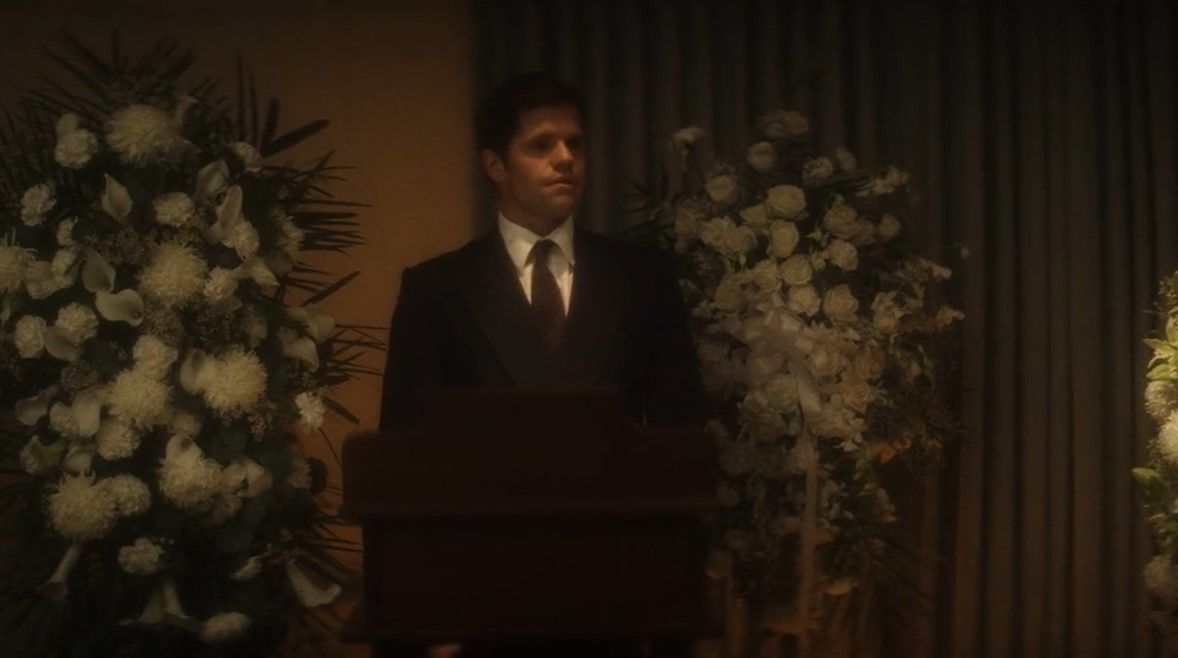REVIEW: American Horror Story Season 11, Episodes 9 and 10, “Requiem 1981/1987” Parts 1 and 2
"The darkness always wins, all we can ever do is transcend."
***SPOILERS***
“Requiem 1981/1987 Part 1” opens at Theo’s funeral, where Sam collapses. In a sort of dreamscape, Theo appears as a doctor and shows Sam the effects of his illness. He then finds himself held prisoner by Henry and Big Daddy. Then, we check in with Gino and Patrick, the latter of whom is in the hospital with a detached retina. Patrick then sees Barbara, who says she can help him see. They revisit Patrick’s memories as he dies in Gino’s arms.
In “Part 2,” Adam arrives at the scene of Hannah’s death. After the police leave, he takes her tape recorder and investigates. He learns that his getting Hannah pregnant made her sick and killed her. Kathy closes her club, no longer feeling safe in the city. Gino, Adam, and others attend Patrick’s funeral. After years of watching friends die from the sickness, Gino dies in 1991, leaving Adam alone in the world.
The acting in both episodes is sensational. Zachary Quinto elicits sympathy for Sam in “Requiem 1981/1987 Part 1,” which is a miracle in itself. I have issues with how Sam is portrayed in this episode, but it has nothing to do with Quinto’s performance. I’ll come back to that. Joe Mantello shines as Gino as well, and I like how assertive Theo is in Sam’s visions. It’s a particular highlight when Theo says, “That should have been an easy answer,” when Sam can’t decide if he meant to kill him. I’m somewhat relieved to see some remorse from Sam regarding these events. It’s a little convenient for him to fall ill at Theo’s funeral, but I think the drama serves the story.
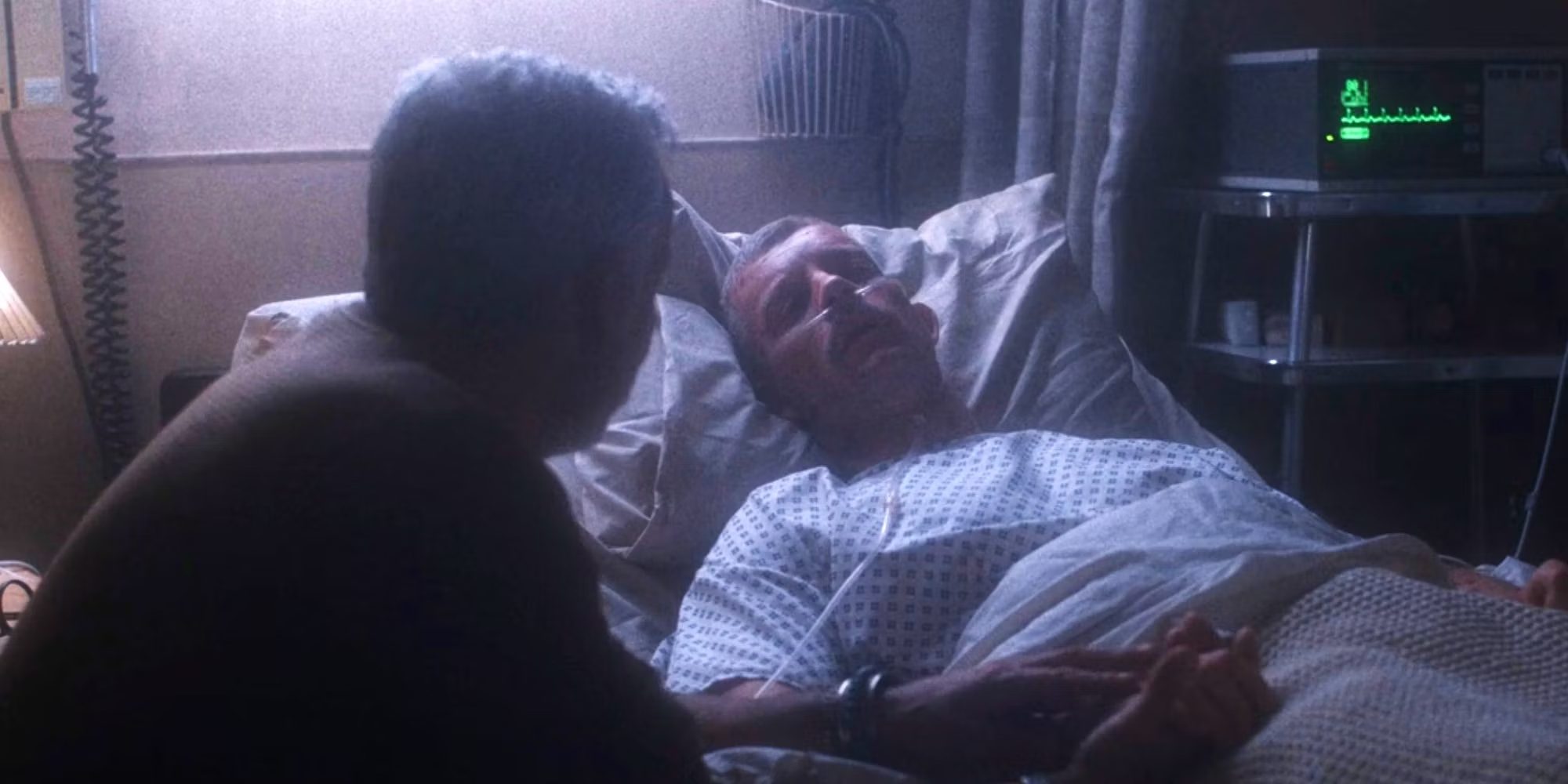
Big Daddy is less of a character (or the plot device he’s been all season) and more of a symbol in the 2-part finale. He clearly represents death or, more accurately, AIDS. They never say this explicitly, and I didn’t notice anyone say AIDS at all. Each death was attributed to pneumonia and other diseases worsened by the immune system’s inability to fight. He comes for the men one by one and creeps in the background. You can see him behind Gino throughout “Part 2,” and the writing is on the wall; he’s a dead man walking. He also follows Adam around and lingers as he listens to Hannah’s notes. Although we never see him unmasked, Matthew William Bishop is intimidating in the role. The mask even heightens his dehumanization. Near the end of “Part 1,” Sam unmasks and embraces him, but I don’t understand this. The man under the mask is a thin, blond man who looks nothing like Big Daddy.
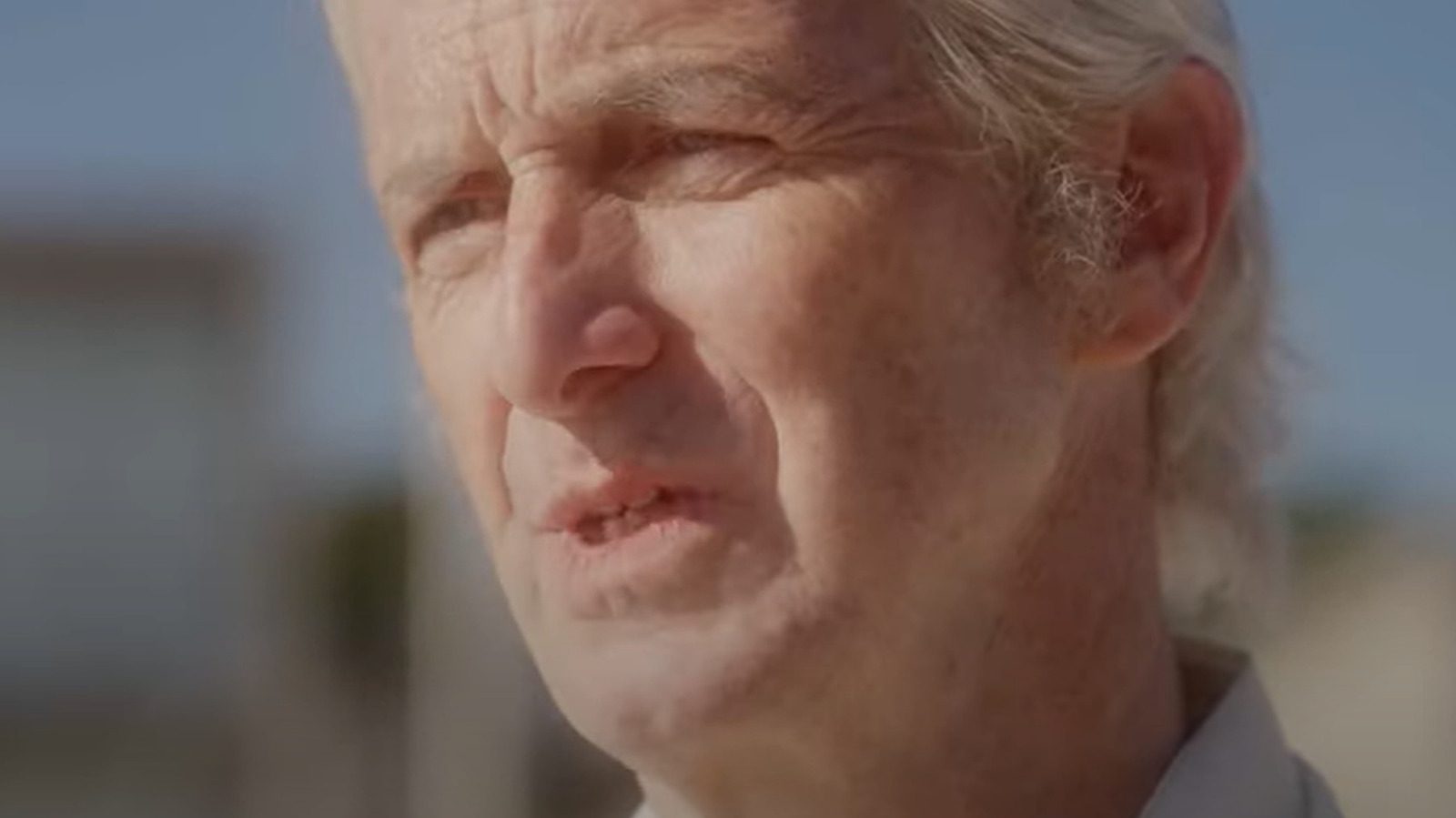
This also ties into my problem with Sam’s characterization here. Who is the blond guy, what does he represent, and how does he relate to Sam’s character? How does embracing love (as Henry puts it) make up for a lifetime of cruelty and sadism? Sam tricked a boy into being tortured and (accidentally) killed his own boyfriend. I don’t buy it for a second. And why is Henry a sort of spiritual guide for Sam? I’m not sure the business relationship they had prior justifies this. When I die, I don’t want to be greeted by some business associate I had in life. It doesn’t make sense for Henry’s character, either; sure, he was a hitman. I’m not arguing that he was a saint. But why is he torturing Sam physically and mentally? Henry didn’t strike me as the type to enjoy hurting people. Even if they’re just trying to force Sam to understand what he’s been doing to these men, I don’t think this was the way to do it. This character is beyond redemption and belongs in the same category as Big Daddy, if not Whitley.
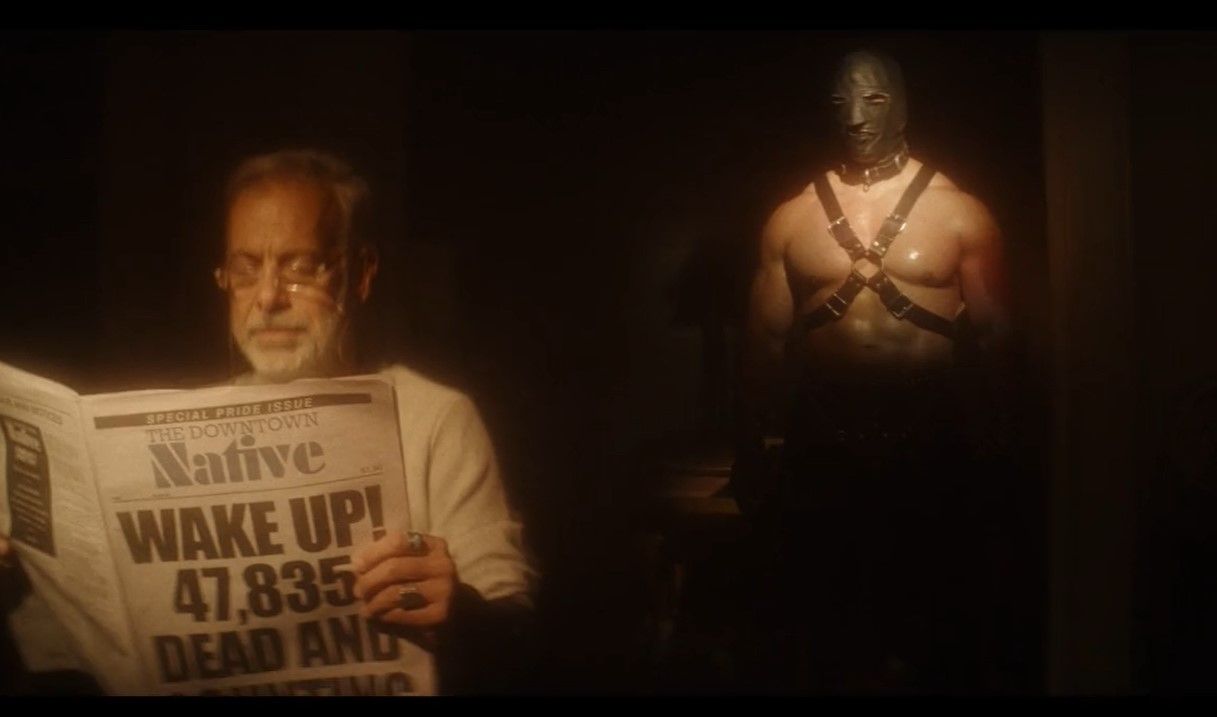
I think having Barbara guide Patrick to inner peace makes a lot more sense. They were very close, even if he didn’t love her the same way she did him. And she represents a significant source of personal guilt for Patrick, both in how he behaved in their marriage and how she died. Although I have to say, I don’t understand why Big Daddy killed Barbara in light of the revelations in these episodes. If he’s a manifestation of the AIDS epidemic, it makes sense for Hannah to have contracted it from Adam’s semen, regardless of the artificial way she impregnated herself. But Barbara never actually had sex with Patrick, even though she wanted to. She even mentioned “not doing everything couples do” when trying to convince Patrick to call off the divorce. If Barbara didn’t get AIDS from her gay husband, who wouldn’t touch her anyway, why does Big Daddy kill her? I think this is a bigger problem with NYC’s theming; is Big Daddy a character or a symbol? Big Daddy the character does things that don’t make sense for Big Daddy, the AIDS epidemic, and vice versa. What was the point of Big Daddy as a character prior to the dream sequences? I’m lost.
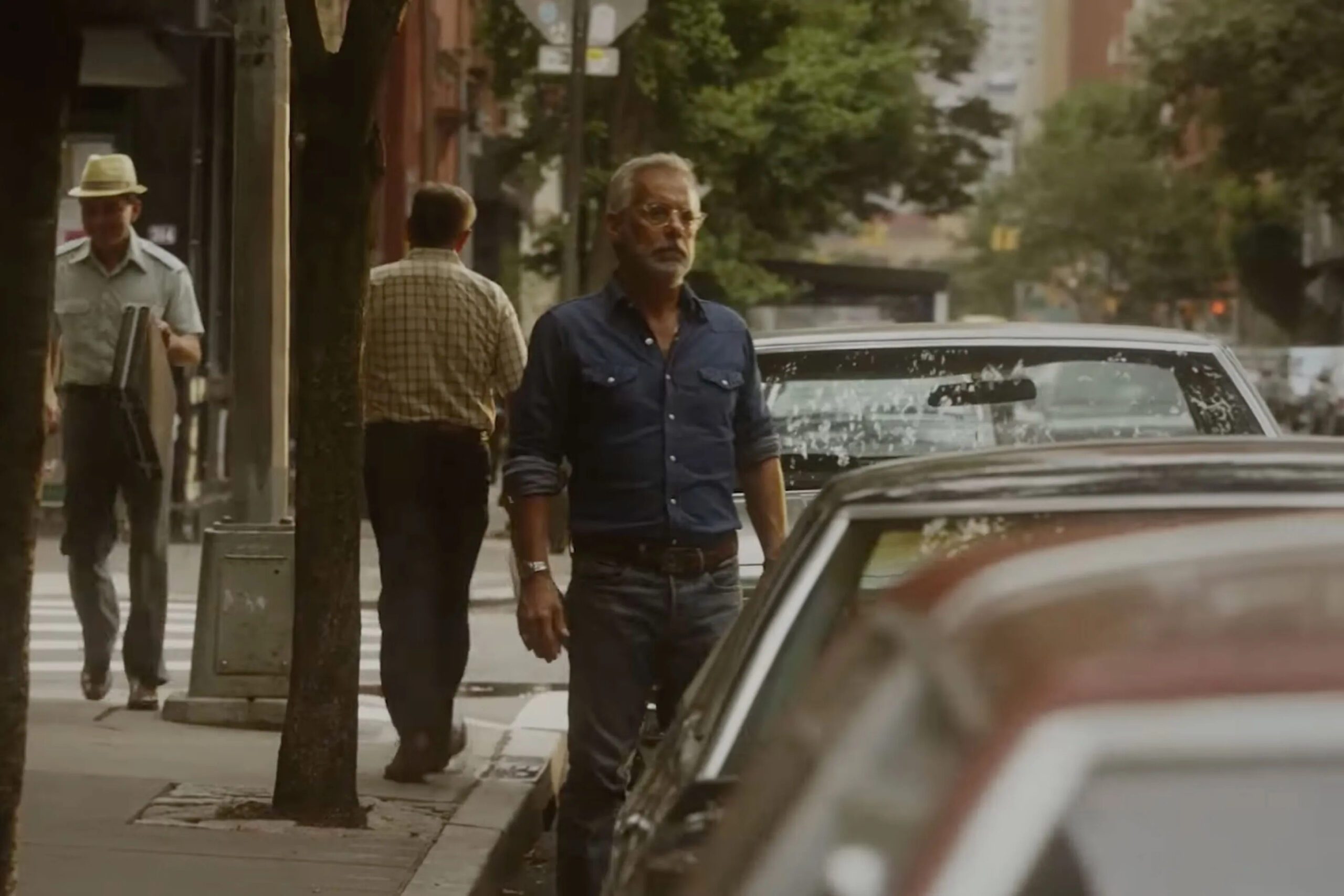
Although this is more of a nitpick, the “Requiem” two-parter also introduces unnecessary logistical problems. Would they really let Adam in Hannah’s apartment? As far as the cops know, this could be a crime scene. And is it really smart to let a close, personal friend into her house to see the mess and go through her stuff? We know Adam has good intentions in taking Hannah’s tape recorder, but the other characters in the scene don’t. The scene where Patrick’s mom ignores Gino at Patrick’s funeral also made me very curious about their relationship and the mom’s bond with Patrick. The clear implication is that Mrs. Reed didn’t like that Patrick was gay and doesn’t like Gino for being with him or seducing him away from Barbara or whatever. But Patrick was the wild child and the bad influence on others, not the victim of bad apples. I guess that’s pretty accurate, though; when do parents want to admit that their child is the problem, even when they’ve grown up? I wish we learned if Patrick ever made it up to Gino for lying to him so many times. Gino is a remarkably loyal partner, caring for Patrick right up to the end.
“Requiem 1981/1987” is an uneven finale to an inconsistent season. The acting is phenomenal, and I really like the somber tone. Leaving Adam on his own at the end, with all of his friends dead, is deeply moving. But there are problems with the story and certain characters that can’t be ignored.
American Horror Story Season 11, Episodes 9 and 10, "Requiem 1981/1987" Parts 1 and 2
Plot - 6
Acting - 10
Progression - 7
Production Design - 8
Character Development - 5
7.2
Okay
"Requiem 1981/1987" is an uneven finale to an inconsistent season.

